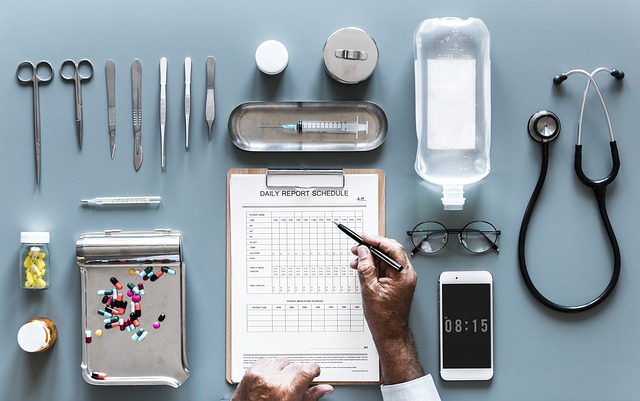How Does Chemotherapy Work?

Doctors use chemotherapy as a treatment for cancer. Chemotherapy is the process by which the drugs kill cancer cells, and prevent them from dividing and growing. Effectiveness can vary, depending on the stage and type of cancer, and side effects can be severe.
How Does Chemotherapy Kill Cancer Cells?
Cancerous cells multiply at a rapid rate until they occupy space that should be occupied by healthy cells. This mass becomes a tumor. Healthy cells divide at a slow pace unless the body needs to heal. Chemo kills cells that are trying to split into two new cells. Doctors will introduce drugs into the bloodstream that damage the nucleus of splitting cells. How the nucleus is damaged depends on the drug. Some drugs can harm the cells while they are making copies of the genes needed to multiply before they split. Others target the cancer cells’ food source, while others cause the cell to kill itself.
How Is Chemotherapy Administered?
Chemo works through the bloodstream, so the drugs used must be absorbed by the blood. Routes of administration all depend on the type of cancer being treated, where the cancer resides in the body, and which drugs are used. Most commonly, doctors will introduce the drugs directly into the bloodstream through an injection or drip. Drugs can also be administered orally, via capsules or tablets. Less commonly, drugs may be injected into muscle tissues, or underneath the skin. Treatment may sometimes require more than one method. More specialized administration routes include injection into an artery, the spinal canal, a body cavity, and directly into the tumor.
Side Effects of Chemo
The body’s reaction to chemotherapy will vary based on the type of drug used. There are over 100 types of chemotherapy drugs used in treatment. Speak with your doctor about the specific side effects of the drug(s) they would like to use for treatment.
- Fatigue and lethargy
- Nerve damage, such as numbness or a pins-and-needles feeling in the hands and feet
- Bruising more easily, due to lower platelets
- Hair loss or thinning
- Increased risk of infection, as some drugs lower white blood cell production
- Breathlessness from lower oxygen levels circulating in the blood
- Nausea and lack of appetite
How Well Does It Work?
How well chemo works depends on the type of cancer. For example, chemo works well to cure testicular cancer and Hodgkin lymphoma. Other types of cancer cannot be cured with chemotherapy alone but can be used with other treatments to help put the patient in remission. Remission is when there is no sign of cancer after treatment. Complete remission means that blood tests, x-rays, scans, and all other means of detection do not pick up on any traces of the cancer anymore. Partial remission means the cancer cells are still present but are no longer growing.
Got Medicare Questions?
We hope that this information on chemotherapy was useful to you.
Let us help you answer your questions so that you can get back to the activities that you enjoy the most.
Call (888) 446-9157, click here to get an INSTANT QUOTE, or leave a comment below!
See our other websites:
This Article Was Updated: 7/29/2024.

